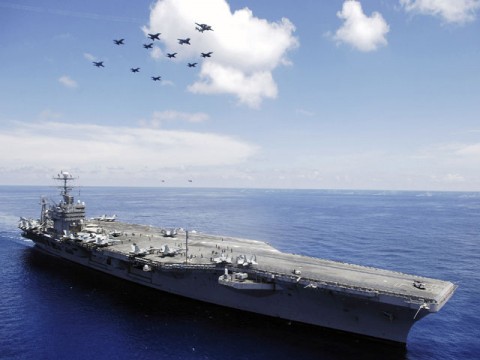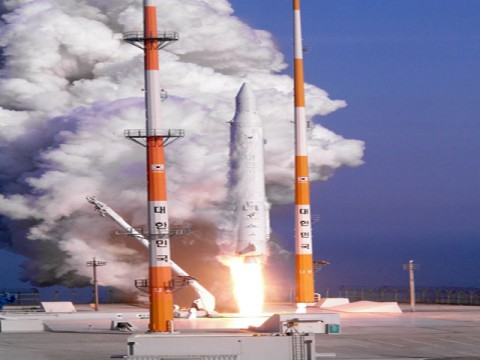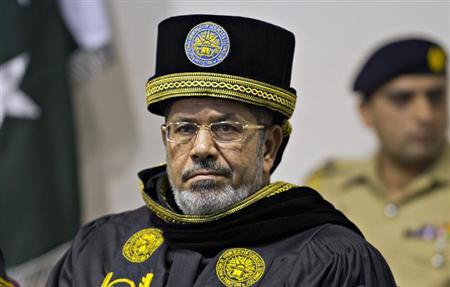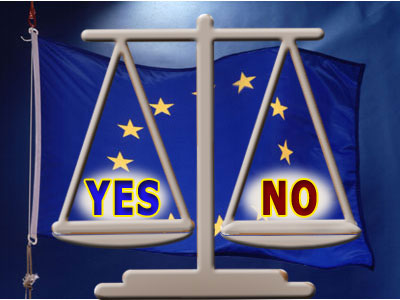- Web
- Humsa
- Videos
- Forum
- Q2A


.jpg)
Given these last weeks, who doesn't know what an AR-15 is? Who hasn't seen the mind-boggling stats on the way assault rifles have flooded this country, or tabulations of accumulating Newtown-style mass killings, or noted that there are barely more gas stations nationwide than federally licensed firearms dealers,
or heard the renewed debates over the Second Amendment, or been struck by the rapid shifts in public opinion on gun control, or checked out the disputes over how effective an assault rifle ban was the last time around? Who doesn't know about the NRA's suggestion to weaponise schools,
or about the price poor neighbourhoods may be paying in gun deaths for the present expansive interpretation of the Second Amendment? Who hasn't seen the legions of stories about how, in the wake of the Newtown slaughter, sales of guns, especially AR-15 assault rifles, have soared, ammunition sales have surged, background checks for future gun purchases have risen sharply, and gun shows have been besieged with customers?
Has there, in fact, been any aspect of the weaponisation of the US that, since the Newtown massacre, hasn't been discussed? Are you the only person in the country, for instance, who doesn't know that Vice President Joe Biden has been assigned the task of coming up with an administration gun-control agenda before Barack Obama is inaugurated for his second term? And can you honestly tell me that you haven't seen global comparisons of killing rates in countries that have tight gun laws and the US, or read at least one discussion about life in countries like Colombia or Guatemala, where armed guards are omnipresent?
After years of mass killings that resulted in next to no national dialogue about the role of guns and how to control them, the subject is back on the American agenda in a significant way and - by all signs - isn't about to leave town anytime soon. The discussion has been so expansive after years in a well-armed wilderness that it's easy to miss what still isn't being discussed, and in some sense just how narrow our focus remains.
Think of it this way: The Obama administration is reportedly going to call on Congress to pass a new ban on assault weapons, as well as one on high-capacity ammunition magazines, and to close the loopholes that allow certain gun purchasers to avoid background checks. But Biden has already conceded, at least implicitly, that facing a Republican-controlled House of Representatives and a filibuster-prone Senate, the administration's ability to make much of this happen - as on so many domestic issues - is limited.
That will shock few Americans. After all, the most essential fact about the Obama presidency is this: At home, the president is a hamstrung weakling; abroad, in terms of his ability to chose a course of action and - from drones strikes and special ops raids to cyberwar and other matters - simply act, he's closer to Superman. So here's a question: While the administration is pledging to try to curb the wholesale spread of ever more powerful weaponry at home, what is it doing about the same issue abroad where it has so much more power to pursue the agenda it prefers?
FLOODING THE WORLD WITH MOST ADVANCED WEAPONRY
As a start, it's worth noting that no one ever mentions the domestic gun control debate in the same breath with the dominant role the US plays in what's called the global arms trade. And yet, the link between the two should be obvious enough. In the US, the NRA, an ultra-powerful lobbying group closely allied with weapons-making companies, has a strong grip on Congress - it gives 288 members of that body its top "A-rating" - and is in a combative relationship with the White House. Abroad, it's so much simpler and less contested. Beyond US borders, the reality is: The Pentagon, with the White House in tow, is the functional equivalent of the NRA, and like that organisation, it has been working tirelessly in recent years in close alliance with major weapons-makers to ensure that there are ever less controls on the ever more powerful weaponry it wants to see sold abroad.
Between them, the White House and the Pentagon - with a helping hand from the State Department - ensure that the US remains by far the leading purveyor of the "right to bear arms" globally. Year in, year out, in countries around the world, they do their best to pave the way (as the NRA does domestically) for the almost unfettered sales of ever more lethal weapons. In fact, the US now has something remarkably close to a monopoly on what's politely called the "transfer" of weaponry on a global scale. In 1990, as the Cold War was ending, the US had cornered an impressive 37 per cent of the global weapons trade. By 2011, the last year for which we have figures, that percentage had reached a near-monopolistic 78 per cent ($66.3b in weapons sales), with the Russians coming in a distant second at 5.6 per cent ($4.8b).
Admittedly, that figure was improbably inflated, thanks to the Saudis who decided to spend a pile of their oil money as if there were no tomorrow. In doing so, they created a bonanza year abroad for the major weapons-makers. They sealed deals on $33.4b in US arms in 2011, including 84 of Boeing's F-15 fighter jets and dozens of that company's Apache attack helicopters as well as Sikorsky Blackhawk helicopters - and those were just the highest-end items in a striking set of purchases. But if 2011 was a year of break-the-bank arms-deals with the Saudis, 2012 doesn't look bad either. As it ended, the Pentagon announced that they hadn't turned off the oil spigot.
They agreed to ante up another $4b to Boeing for upgrades on their armada of jet fighters and were planning to spend up to $6.7b for 20 Lockheed 25 C-130J transport and refueling planes. Some of this weaponry could, of course, be used in any Saudi conflict with Iran (or any other Middle Eastern state), but some could simply ensure future Newtown-like carnage in restive areas of that autocratic, fundamentalist regime's land or in policing actions in neighbouring small states like Bahrain. And don't think the Saudis were alone in the region.
When it came to US weapons-makers flooding the Middle East with firepower, they were in good company. Among states purchasing (or simply getting) infusions of US arms in recent years were Bahrain, Egypt, Iraq, Jordan, Kuwait, Oman, Tunisia, Qatar, the UAE, and Yemen. As Nick Turse has written, "When it comes to the Middle East, the Pentagon acts not as a buyer, but as a broker and shill, clearing the way for its Middle Eastern partners to buy some of the world's most advanced weaponry."
It's a given that every American foreign policy crisis turns out to be yet another opportunity for the Pentagon to plug US weapons systems into the "needs" of its allies, and for the weapons-makers to deliver. So, from India to South Korea, Singapore to Japan, the Obama admin announced 2012 "pivot to" or "rebalancing in" Asia - an essentially military programme focused on containing China - has proven the latest boon for US weapons sales and weapons-makers.
All of this ensures the sharpening of divides between China and its neighbours in the Pacific amid what may become a regional arms race. For the Pentagon, it seems, no weaponry is now off the table for key Asian allies in its incipient anti-China alliance, including advanced drones.
Recently, it has been reported that Japan is preparing to buy the same model as its dispute sharpens with China over a set of islands in the East China Sea (the Obama administration has also been pushing the idea of selling advanced armed drones to allies like Italy and Turkey, but - a rare occurrence - has met resistance from Congressional representatives worrying about other countries pulling a "Washington": that is, choosing its particular bad guys and sending drone assassins across foreign borders to take them out).
Here's the strange thing in the present gun control context: No one - not pundits, politicians, or reporters - seems to see the slightest contradiction in an administration that calls for legal limits on advanced weaponry in the US and yet (as rare press reports indicate) is working assiduously to remove barriers to the sale of advanced weaponry overseas. There are, of course, still limits on arms sales abroad, some imposed by Congress, some for obvious reasons.
The Pentagon does not broker weapons sales to Iran, North Korea, or Cuba, and it has, for example, been prohibited by Congress from selling them to the military regime in Myanmar. But generally the Obama administration has put effort into further easing the way for major arms sales abroad, while working to rewrite global export rules to make them ever more permeable.
 Budget pressures at the Pentagon have renewed a debate about the value of the US Navy’s giant aircraft carriers, with critics arguing the warships are fast becoming costly relics in a new era of warfare.
With the Pentagon facing $500 billion in cuts over the next decade, a Navy officer has dared to question the most treasured vessels in his service&..... Read more
Budget pressures at the Pentagon have renewed a debate about the value of the US Navy’s giant aircraft carriers, with critics arguing the warships are fast becoming costly relics in a new era of warfare.
With the Pentagon facing $500 billion in cuts over the next decade, a Navy officer has dared to question the most treasured vessels in his service&..... Read more
 South Korea succeeded Wednesday in its third attempt to put a satellite into orbit, in a high-stakes test of national pride after arch-rival North Korea got there first with a rocket launch last month.The 140-tonne Korea Space Launch Vehicle (KSLV-I) blasted off at 4:00 pm (0700 GMT) from the Naro Space Center on the south coast, reaching its target altitude..... Read more
South Korea succeeded Wednesday in its third attempt to put a satellite into orbit, in a high-stakes test of national pride after arch-rival North Korea got there first with a rocket launch last month.The 140-tonne Korea Space Launch Vehicle (KSLV-I) blasted off at 4:00 pm (0700 GMT) from the Naro Space Center on the south coast, reaching its target altitude..... Read more
 Egyptian President Mohamed Mursi threatened on Sunday to take unspecified steps to "protect this nation" after violent demonstrations against his Muslim Brotherhood, using vague but severe language that the opposition said heralded a crackdown.
In remarks following clashes outside the Brotherhood's Cairo headquarters on Friday, Mursi warned th..... Read more
Egyptian President Mohamed Mursi threatened on Sunday to take unspecified steps to "protect this nation" after violent demonstrations against his Muslim Brotherhood, using vague but severe language that the opposition said heralded a crackdown.
In remarks following clashes outside the Brotherhood's Cairo headquarters on Friday, Mursi warned th..... Read more












 Clean Chit (Faisal Raza Abidi ...
Clean Chit (Faisal Raza Abidi ...  Akhir Kiyon - 16th December 2...
Akhir Kiyon - 16th December 2...  To The Point - 16th December ...
To The Point - 16th December ...  Capital Talk â
Capital Talk â  Kal Tak - 16th December 2013
Kal Tak - 16th December 2013  Bay Laag - 16th December 2013
Bay Laag - 16th December 2013  Kharra Sach - 16th December 2...
Kharra Sach - 16th December 2...  Awaam - 15th December 2013
Awaam - 15th December 2013 





 Gold Miner
Gold Miner  Superbike GP
Superbike GP  Whipsaw Fighter
Whipsaw Fighter  PacMan
PacMan 


